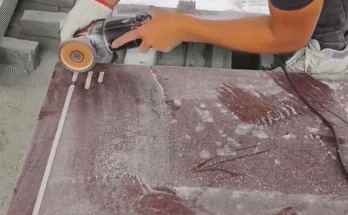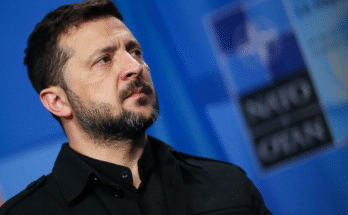
While President Donald Trump struck a triumphant tone following U.S. strikes on Iran’s nuclear facilities, concern is mounting within his administration over potential Iranian retaliation. “There’s a lot of risks here for escalation,” one source close to the White House noted, reflecting a less optimistic mood behind the scenes.
The decision to deploy B-2 bombers against Iran marks the most significant military action of Trump’s presidency, potentially drawing the U.S. into another prolonged Middle East conflict – a scenario Trump and Vice President JD Vance have consistently vowed to avoid. An administration official, speaking anonymously, stated, “We don’t know how much this is going to get us into something protracted. Right now the message is we want to get rid of the nuclear capacity and focus on negotiations.”
According to a senior White House official, Trump had become increasingly convinced in recent days that he had a unique chance to neutralize Tehran’s nuclear capabilities with minimal risk to American personnel. Plans for the attack, which Trump later called “very successful,” were already in motion even as the president publicly deliberated joining Israel’s efforts to dismantle Iran’s nuclear sites.
Despite offering a glimmer of hope for de-escalation, Trump was simultaneously evaluating military options. “He looked at various strike packages and selected a narrow and tailored one,” an official confirmed. This “surgical” strike, which avoided deploying ground troops or directly endangering American lives, was seen as consistent with Trump’s pledge to avoid costly, long-term wars that have historically faced public opposition.
In his Saturday address, Trump hinted that the U.S. strikes were, for now, complete, expressing hope that U.S. service members who carried out the attacks would no longer be needed. He also urged Tehran to pursue peace, warning of a “far greater” tragedy if they failed to do so, especially given Israel’s recent strikes on Iranian military and nuclear sites.
The critical factor now is Iran’s response. With over 40,000 U.S. troops and Defense Department civilians stationed in the Middle East, they remain potential targets if Tehran chooses to retaliate. The administration is increasingly confident that recent Israeli military actions have sufficiently weakened Iran and its proxy networks, thereby limiting Tehran’s ability to respond and ignite a wider conflict. A U.S. official described it as a “realistic possibility” that Iran might either yield after the American strikes or opt for a limited response that allows for a diplomatic off-ramp. “This is really uncharted territory for Iran,” the official added. “The regime has been attempting to prevent a U.S. attack since its inception.”
However, within Trump’s inner circle, apprehension persists. “There’s a lot of risks here for escalation,” reiterated one individual familiar with internal discussions. They cautioned that a mass casualty event involving Americans stemming from Iran’s response would significantly increase pressure on the U.S. to further intervene. This source also mentioned that Defense Secretary Pete Hegseth would face pressure to validate the success of the strikes, particularly given a Pentagon assessment earlier this year that it would take 30 days of sustained strikes to destroy Iran’s nuclear facilities due to their deep underground locations and dispersed layout.
The White House notified Republican and Democratic congressional leadership of the bombings, though some Democrats, including ranking members of the House and Senate intelligence committees, contended they were not adequately briefed beforehand. Representative Jim Himes (D-Conn.) expressed his frustration on X, stating, “According to the Constitution we are both sworn to defend, my attention to this matter comes BEFORE bombs fall.” Senate Minority Leader Chuck Schumer reportedly received only a perfunctory notification without specific details.
On Saturday, the administration also informed NATO allies Britain and France of the planned strikes. Trump’s decision, though solidified in the past week, aligns with his longstanding foreign policy stance that Iran must not develop a nuclear weapon. “I decided a long time ago I would not let this happen. It will not continue,” he declared in his Saturday remarks.


